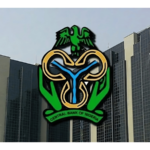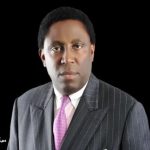A new report by international charity Oxfam has revealed that imposing an additional 1 percent wealth tax and a 10 per cent income tax on Africa’s richest could generate $66 billion (over ₦100 trillion) annually — funds that could dramatically transform social services across the continent, including in Nigeria.
According to the report, this revenue could bridge key development gaps, especially in providing free, quality education and universal access to electricity — sectors where Nigeria continues to face critical deficits. With over 10 million out-of-school children and persistent power supply challenges, analysts suggest that Nigeria stands to benefit significantly from a continental tax reform of this nature.
Oxfam’s findings comer at a time when economic inequality in Nigeria is worsening. While millions struggle with inflation, unemployment, and poor access to healthcare and education, Nigeria is home to several ultra-wealthy individuals. The report notes that four of Africa’s wealthiest individuals — some of whom are Nigerian — collectively hold $57.4 billion in wealth, more than the combined wealth of half of the continent’s 1.5 billion people.
In 2000, Africa had no billionaires. Today, there are 23, with a combined net worth of $112.6 billion — a 56 percent increase in just five years. The top 5 per cent of Africans now control nearly $4 trillion in wealth, over twice the total wealth of the remaining 95 percent of the population.
Oxfam criticized African governments, including Nigeria, for failing to implement effective tax policies that can curb inequality. The report claims that African tax systems are nearly three times less effective at redistributing income from the wealthiest compared to the global average.
“Most African countries are not fully leveraging progressive taxation to effectively tax the super-rich and address inequality,” the report said.
In Nigeria, the tax-to-GDP ratio remains among the lowest in the world, at around 10 percent, far below the African average.
The report also highlighted that Africa loses an estimated $88.6 billion annually to illicit financial flows — a problem that has plagued Nigeria for decades, with billions lost to tax evasion, money laundering, and corrupt practices.
It argues that with better tax systems and political will, countries like Nigeria could not only reclaim lost revenues but also finance critical development initiatives without relying excessively on loans or foreign aid.
Oxfam recommends that African governments, including Nigeria’s, prioritize progressive tax reforms that ensure the wealthy pay their fair share. This includes closing tax loopholes, increasing transparency in financial disclosures, and strengthening institutions to fight tax evasion and corruption.
In a country like Nigeria — Africa’s most populous nation and its largest economy — the implementation of such reforms could unlock massive funding for education, healthcare, and infrastructure, helping to bridge the deepening wealth gap and uplift millions from poverty.
As calls grow for more equitable tax systems across Africa, the spotlight is now on policymakers in Abuja and other African capitals to decide whether they will rise to the challenge.
ALSO READ TOP STORIES FROM NIGERIAN TRIBUNE
WATCH TOP VIDEOS FROM NIGERIAN TRIBUNE TV
- Let’s Talk About SELF-AWARENESS
- Is Your Confidence Mistaken for Pride? Let’s talk about it
- Is Etiquette About Perfection…Or Just Not Being Rude?
- Top Psychologist Reveal 3 Signs You’re Struggling With Imposter Syndrome
- Do You Pick Up Work-Related Calls at Midnight or Never? Let’s Talk About Boundaries







